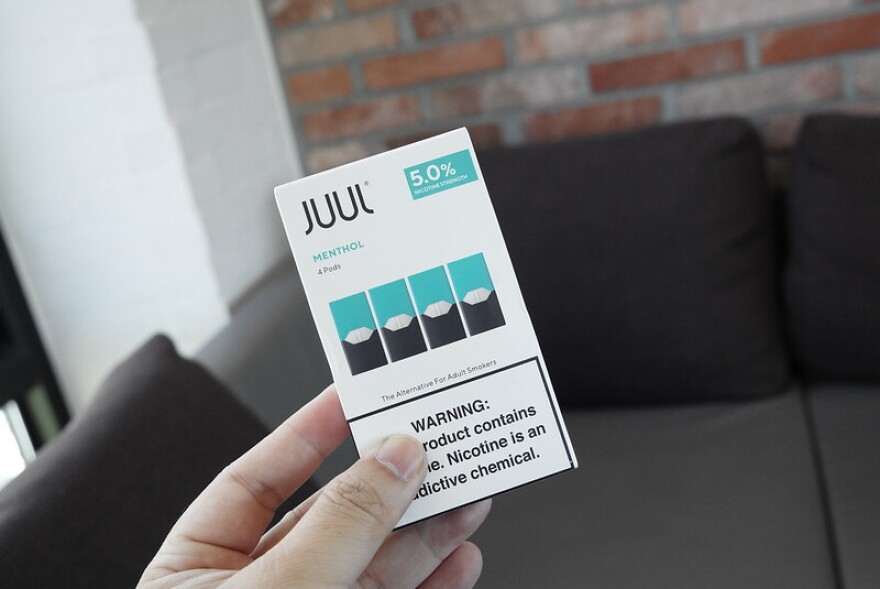The electronic cigarette maker Juul has agreed to pay nearly $440 million to settle an investigation into its marketing. The money will be paid out directly to 34 states and territories, including Wyoming, Utah, Idaho, Montana and Nevada. Colorado and New Mexico weren’t part of the settlement, but have their own suits pending.
More than 2 million middle and high schoolers in the U.S. used e-cigarettes last year. A quarter of those users said they vape daily. Vaping can lead to lung inflammation and nicotine addiction, and it can stunt brain development, among other health effects.
The states’ probe found that Juul was pushing its popular products specifically to underage teenagers using product launch parties and ad campaigns. Meredith Berkman, co-founder of Parents Against Vaping E-Cigarettes, said those actions led to irreparable harm for millions of children without their parents knowing what was going on.
“Adults did not realize, but all the kids knew what Juul was because it was being marketed to them in their own schools,” Berkman said. “Also, on social media platforms that were for young people where adults were not.”
The investigation found that Juul’s online campaigns used youthful models and often downplayed the negative side effects of vaping. Their flavored pods also became highly popular among young people – 85 percent of teenage users reported preferring the fruit, mint or dessert flavors to tobacco.
The company was also accused of giving away free products on tribal lands and it took out ads on cartoon channels like Nickelodeon.
“You can't put a number on the human cost of the millions of young people and their families – the impact – the negative impact that they have felt,” Berkman said.
Juul didn’t admit to any wrongdoing in this settlement. The company has shifted its branding in recent years as a product that helps people quit traditional cigarettes.
“The terms of the agreement are aligned with our current business practices which we started to implement after our company-wide reset in the Fall of 2019,” the company wrote in a statement.
As part of the agreement, Juul also must refrain from certain marketing practices, including paying social media influencers, depicting users under 35 and advertising on billboards and public transportation. The company is also in a court battle with the Food and Drug Administration over whetherit can continue to sell its products at all.
The settlement money will be paid out in the next six to ten years, and most states say the money will go towards youth and parent education efforts, as well as recovery counseling for those severely addicted to nicotine.
Nevada will receive about $14.4 million, Utah $8.6 million, Idaho $8.3 million, and Montana $6.1 million.
“This settlement will help Nevada’s youth by curbing these harmful marketing tactics and holding the company accountable for its breach of public trust,” the state's attorney general, Aaron Ford, said in a statement.
A representative from the Wyoming Attorney General’s office did not immediately respond with specifics by press time.
This story was produced by the Mountain West News Bureau, a collaboration between Wyoming Public Media, Nevada Public Radio, Boise State Public Radio in Idaho, KUNR in Nevada, the O'Connor Center for the Rocky Mountain West in Montana, KUNC in Colorado, KUNM in New Mexico, with support from affiliate stations across the region. Funding for the Mountain West News Bureau is provided in part by the Corporation for Public Broadcasting.
Copyright 2022 Wyoming Public Radio. To see more, visit Wyoming Public Radio. 9(MDAxNDQ2NDAxMDEyNzU2NzM2ODA3ZGI1ZA001))



